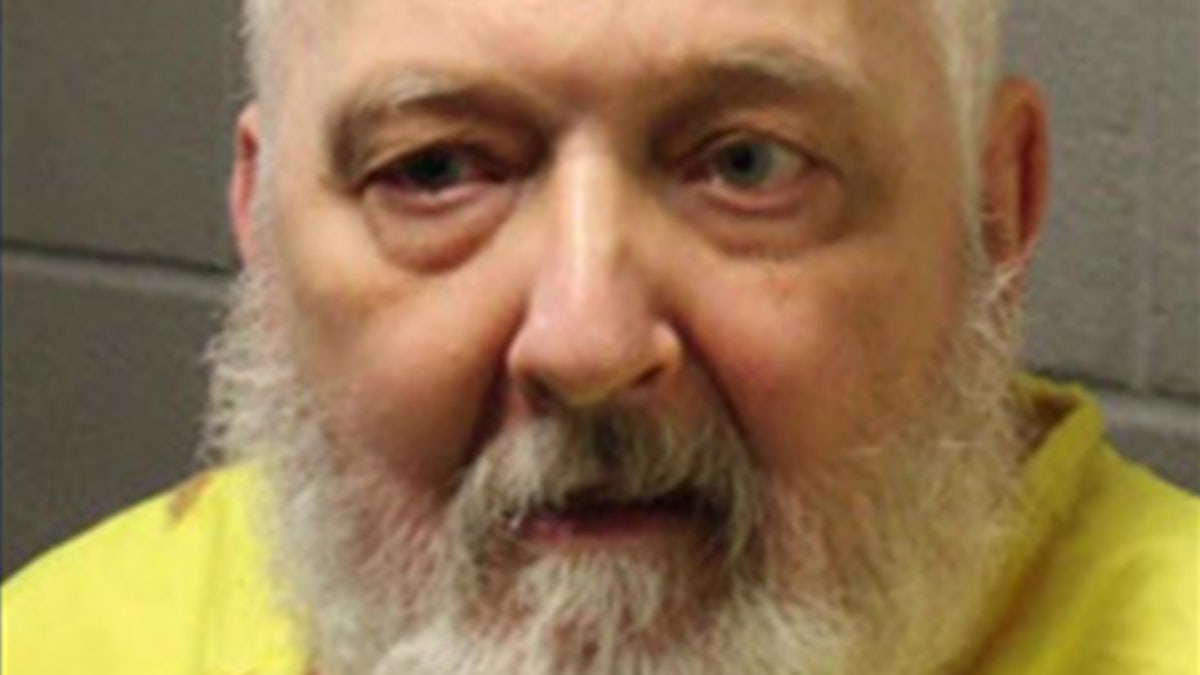
Danny Paul Bible was put to death by lethal injection Wednesday after authorities ignored his plea to be killed by firing squad or nitrogen gas. (FOX26)
A Texas prisoner dubbed the “ice pick killer” will now “burn in hell for eternity,” a family member of one of his victims says, after he was put to death Wednesday night by lethal injection -- with officials ignoring his unusual request to be executed by firing squad or nitrogen gas.
Danny Paul Bible was killed Wednesday night after unsuccessful appeals argued his health issues made it likely his execution would be botched and cause him unconstitutional pain. The 66-year-old was responsible for four killings and at least nine rapes throughout his lifetime, and prior to the injection, his attorneys asked for the alternative execution methods – both of which are illegal in the state of Texas.
"Danny Paul Bible is as vile and evil a person that has ever drawn breath," Larry Lance, whose sister, Pam Hudgins, was among Bible's victims, told the Associated Press. "We are glad to have witnessed him draw his last breath. I know he will burn in hell for eternity."
Asked by the warden Wednesday if he had a final statement, Bible replied: "No, sir."
Bible’s head was shaking slightly as he was administered the lethal dose of the sedative pentobarbital.
As the drug started to take effect, Bible began taking quick breaths, muttering at one point he felt a "burning" sensation and complaining the execution "hurt." His breaths eventually became snores and, about a minute after the procedure began, all movement stopped.
Bible had stared intently at the relatives of two of his victims who watched through a window a few feet from him, but never said anything to them. The execution was the seventh this year in Texas, the country's most active death penalty state.
Bible's guilt was not disputed, but his lawyers had proposed he be rolled in his wheelchair in front of a firing squad or be administered nitrogen gas to cut off oxygen to his brain until he stopped breathing. Lawyers argued his deteriorating health left his veins unsuitable for IVs to be inserted and had said Parkinson's disease was among his several ailments.
"His unique and severe medical conditions render lethal injection an intolerably cruel method of execution as applied to him," attorney Nadia Wood told a high court. His civil rights claim "should not be barred simply because Texas has not authorized an alternative method of execution."
Bible's appeal went to the Supreme Court after the 5th U.S. Circuit Court of Appeals on Tuesday refused his lawsuit seeking a reprieve, a restraining order and an injunction. Assistant Texas Attorney General Stephen Hoffman said in a court filing the lawsuit was a "meritless tactic" to delay his "well-deserved execution."
Bible was a drifter with a record of violence in several states when he was arrested in Fort Myers, Florida, in 1999 for a rape in Louisiana. He told detectives in Louisiana about four Texas killings — including the death of a 4-month-old boy — and at least nine rapes, including five in San Jacinto County northeast of Houston.
The four slaying victims included 20-year-old Inez Deaton, a friend of Bible's cousin who was found on the banks of a Houston bayou in 1979. Investigators determined she had been raped and fatally stabbed with an ice pick. The killing went unsolved for decades before Bible linked himself to the case, and a jury decided in 2003 that the man who became known in Houston as "the ice pick killer" should die for the slaying.
The three other killings all occurred in North Texas on the same day in May 1983. The victims were Bible's sister-in-law, Tracy Powers; her 4-month-old son, Justin; and Powers' roommate, Hudgins.
Bible pleaded guilty to Hudgins' death and was sentenced to 25 years in prison. He served seven and was released to Montana in 1992 on a form of parole known as mandatory supervision.
At his trial for Deaton's slaying in Texas, Harris County prosecutors presented evidence of robberies, thefts, assaults and abductions, including the rape of an 11-year-old girl in Montana and his confessions to repeated sexual assaults of young girls from 1996 to 1998.
"Some criminals' actions are so heinous, they earn the label 'worst of the worst,'" Harris County District Attorney Kim Ogg said.
The Associated Press contributed to this report.





















